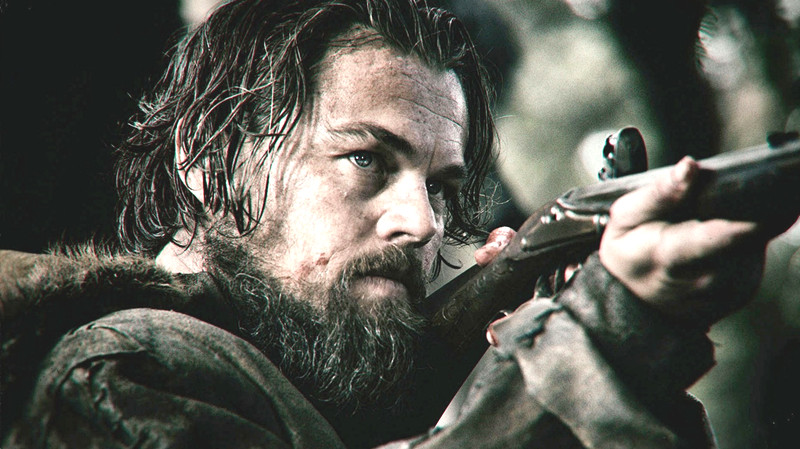
One of the greatest irritations as a film audience is the feeling that your time is being wasted while watching a film that is full of potential. As cinema has come into the twenty-first century, the average length of films has increased, certain genres have formulas nailed down to the point that the narrative can be mapped out to the end of the film about twenty minutes in.
The ten films listed here are just a small selection that outstay their welcome in the cinema, and as a result are just short of greatness.
1. The Hateful Eight (187 mins)
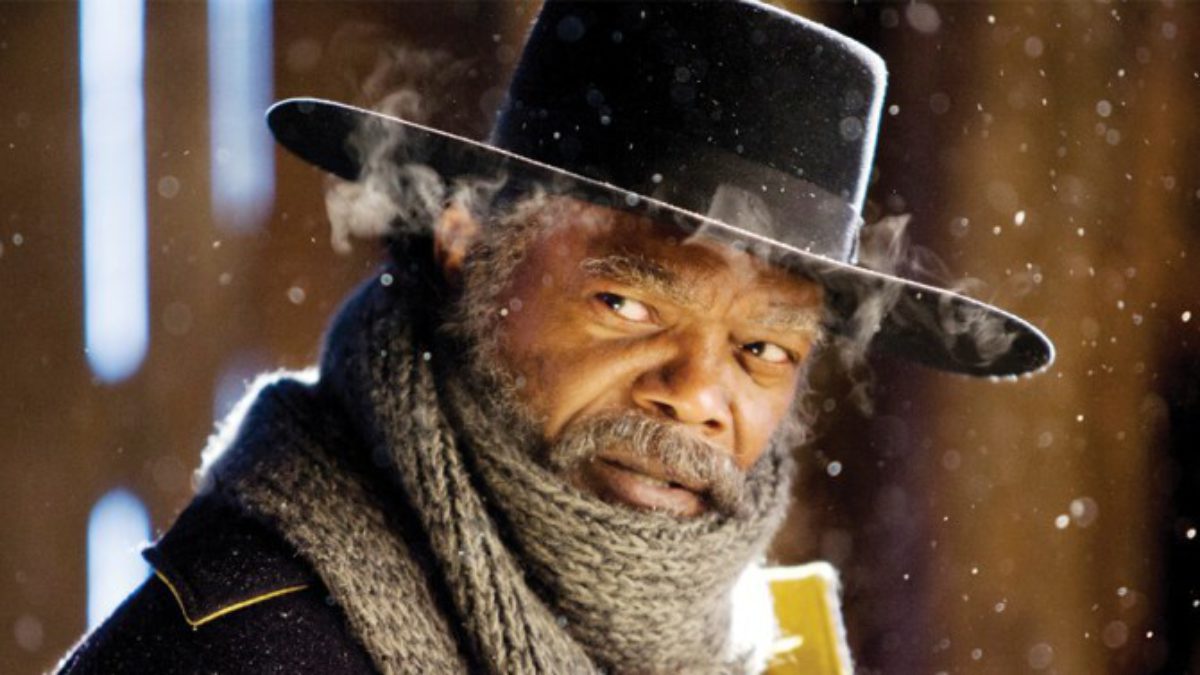
Any of Quentin Tarantino’s last three films could feature on this list, with both Inglourious Basterds and Django Unchained showing promise and energy in their opening acts before fizzing out with plenty of run time still remaining. Tarantino’s “historical” films seem to be set on being epic in length only, with narrative content that cannot be convincingly stretched to near three-hour run times.
The Hateful Eight is an excellent example of that claim but for the complete opposite reasons to the aforementioned films. Rather than opening with energy and gusto, Tarantino decides to kill the pace of the film from the off, making the audience wait forty minutes until we arrive at Minnie’s Haberdashery, where the story itself is actually set. Sufficed to say the opening act, set almost entirely in a horse carriage, does not have the greatest of Tarantino’s dialogue to engage the viewer; indeed it feels very haphazardly written and characters’ anecdotes do not have the same zip and charm of, say, Pulp Fiction.
Once the second act of the film arrives, however, the whole film raises its quality level, as if the section in Minnie’s is what Tarantino was mostly interested in making. Events suddenly become much more engaging as a series of duplicitous outlaws and lawmakers attempt to double cross each other while looking out for their own back, before needlessly reverting to crude and unnecessary flashback sequences that cannot maintain the excellence of the portion of the film that preceded it.
When seen with an interval, The Hateful Eight pushes the three-hour mark in terms of its run time and hidden within that monumental length is some of the best writing, set pieces and acting that are in Tarantino’s whole body of work. Unfortunately, this only accounts for around an hour of The Hateful Eight and if the first act and overlong climax were trimmed down to their bare essentials, Tarantino could have created a brilliantly claustrophobic hour-and-a-half thriller.
2. The Revenant (156 mins)

Alejandro González Inarritu’s retelling of Hugh Glass’ revenge story in America’s harshest environments is unquestionably a superb technical and performative achievement. Emmanuel Lubezki’s artistry with the camera allows the audience to follow sequences in a way that often defies belief, but could equally take you out of the drama, examining the movement of the camera instead of what is actually being depicted on screen.
For a film that is a straightforward revenge story, The Revenant spends a large amount of run time pushing DiCaprio to the extreme in order to survive, focusing just as much time on the battle against the environment as the revenge story. Unfortunately, the film suffers in this aspect, particularly when Glass has visions of his dead Native American wife.
Not only do these sequences not evoke any emotional resonance, they also seem like an excuse for Glass to be labelled as “the hero”. While being a white man in a land that has been conquered by white men, the fact that he has married a native is supposed to make his role in the colonising army more acceptable.
Much like The Hateful Eight, The Revenant goes in a wayward direction in the final act of the film, seemingly reluctant to give the audience the showdown that the film promised. Ultimately, The Revenant allows its director far too many indulgences, with the focus of praise on lavish cinematography.
A great deal of the conversation on the film was about how the film was made as opposed to what the film is about. It is clearly a technical achievement but that is not a justification for a film that overstays its welcome by at least a third of its run time.
3. The Green Mile (189 mins)
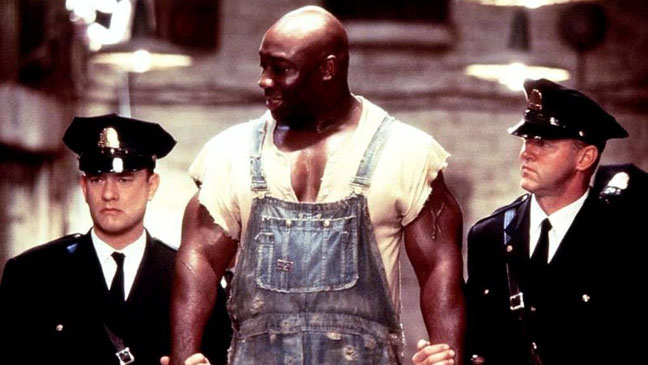
Frank Darabont’s adaptation of the Stephen King novel of the same name slips under the radar when compared to other film versions of the author’s works that have been directed by Darabont (The Mist, The Shawshank Redemption) yet it has the potential to be more powerful than his other films.
The film centres in on the relationship between a prison guard and an inmate on death row, whose arrival brings forth discussion on the supernatural and the power of miracles. The Green Mile could have been a supremely moving piece on the vulnerability of innocent men waiting for their execution, but these moments are few and far between due to the exhausting length of the film, which seems intent on adapting every chapter of King’s novel without consideration for how this would affect the rhythm of the film.
While the film’s climax is unquestionably difficult to watch due to narrative twists as it progresses, but The Green Mile brings with it an excellent screen story that could achieve greatness if it were to trim down its heft.
4. AI: Artificial Intelligence (146 mins)
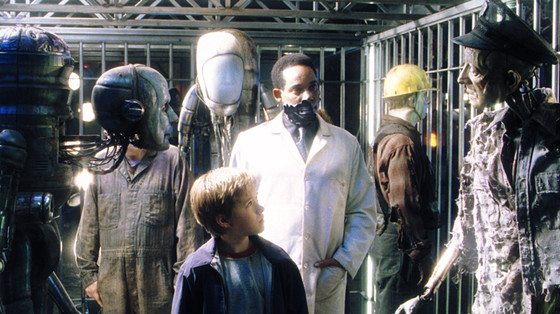
AI: Artificial Intelligence has all the ingredients that you come to expect from Steven Spielberg’s family dramas: the delicate relationship between a mother and a child, the eager innocent eyes of children in an adult world and the emotional ending that aims to tear the heart and bring forth the tears.
Spielberg gives AI a much darker story than the childhood-based films with which he has made his name- although this could be partly due to the fact that the film was going to be directed by Stanley Kubrick before his death.
The boy this time is a robot child, David, who is bought to replace the dying son of a rich family. His relationship with his surrogate mother is forced on her part but the love David has for her is real. Events manipulate themselves to cure the family’s natural son and David is eventually cast out, only to be taken under the wing of Gigolo Joe, in a city where androids are hunted for sport.
Up to the start of the final act of the film, Spielberg plays the story to perfection, providing the viewpoints of David and his mother, Monica, and showing the differences in how they perceive their relationship. The world that David has been shielded from is then exposed, as if the film had shifted into horror cinema, with games put on by people to destroy the androids.
However, the dark tone of the film does not allow Spielberg the sentimental conclusion that he usually gets away with in his work. The film reaches a perfect, downbeat moment fitting to end on with David fleeing the city on his own, only to be frozen at the bottom of the ocean. This would have also provided Spielberg with the opportunity to demonstrate that not all of his tales about children have to have happy endings, particularly in the world he has created with AI.
The film’s actual ending sees David frozen for two-thousand years, whereby he is revived by an angelic civilisation and offered the chance to spend one final day with his mother, in order to have the perfect goodbye. The sequence is purposefully placed in the film to illicit as many tears from the viewer as possible, and its cuddly tone is at complete odds with the entirety of the film before it.
5. The Wolf of Wall Street (180 mins)
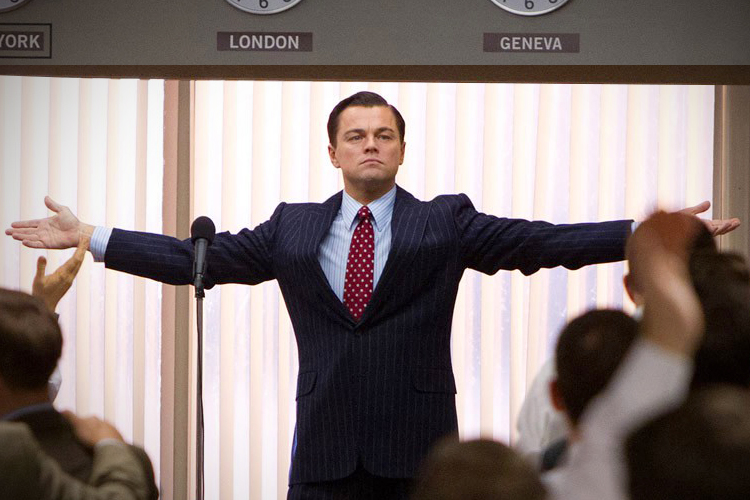
The collaborations between Leonardo DiCaprio and Martin Scorsese have long been something for cinephiles to greet with excitement and praise. However, their most recent partnership is a three-hour cacophony of orgy-filled, drug fuelled madness charting the rise and fall of Jordan Belfort. His notoriety rose due to his occupation as a financial worker who illegally swindled millions out of unsuspecting people.
The film is at its strongest when the comedy is placed front and centre, the much-lauded Quaaludes sequence garnering deserved praise while also demonstrating an underutilised genius of DiCaprio as a physical comedy performer.
Unfortunately, the film’s funnier moments are few and far between. For a film that glorifies the life of a criminal, Scorsese elects to remove him of any emotional resonance that could have had an effect on the audience. The fact that the film never gives the perspective of Belfort’s victims make him detestable, especially when saddled entirely with him for three hours.
In Goodfellas, Scorsese charted the life of Henry Hill from childhood to established gangster in under two and a half hours. Therefore, it is a little rich of him to take three hours to depict Belfort as a man whose narrative arc goes from corrupted stockbroker to corrupted stockbroker who goes to jail.